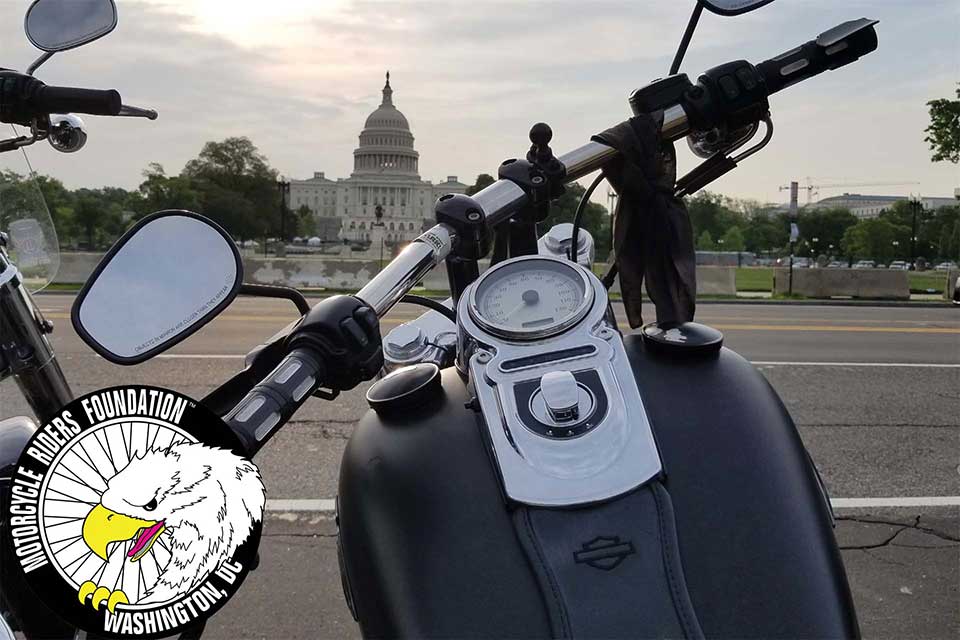
This month the National Highway Traffic Safety Administration (NHTSA) released its annual report, Traffic Safety Facts 2021: A Compilation of Motor Vehicle Traffic Crash Data. The 225-page report contains information on crash types, causes and participants involved. Remember that while we are nearing the end of 2023, this report is 2021 data. NHTSA spent nearly two years compiling these figures before releasing the report.
The data on motorcyclist fatalities is especially troubling. According to the report, in 2021, motorcyclists made up 13.8% of all nationwide traffic fatalities, with 5,932 motorcyclists killed on our nation’s roadways. That is the highest number since data collection began in 1975. In comparison, the pre-Covid year of 2019 saw 5,044 bikers killed.
The number of those injured on motorcycles reported in 2021 was 82,686, which is fewer than the all-time high of 104,442 in 2016. This total injury count represents 3.3% of the 2.5 million people injured in all motor vehicle crashes.
It is important to note that 2021 showed a substantial increase in motorcycles registered. The data also shows an increase in vehicle miles traveled by bikers. NHTSA data shows 9.8 million registered motorcycles with approximately 19.6 billion miles traveled in 2021. Those increases mean that while the total number of fatalities and injuries went up, fortunately, the rate per 100,000 registered motorcycles went down.
Here are other takeaways:
- Riders accounted for 95% of deaths, while 5% were motorcycle passengers.
- 57% of fatalities occurred by collision with another vehicle, 26% resulted from a collision with a fixed object, 4% collision with a non-fixed object, while 13% of fatalities occurred without a collision.
- 34% of fatalities involved a rider impaired by alcohol. That number is in line with the 31% of alcohol-related fatalities nationwide.
- Riders were wearing helmets in 59% of fatalities, while riders were not wearing helmets in 38% of fatalities. Another 3% of fatalities occurred where helmet usage was unknown.
- 29% of fatalities involved an unlicensed rider.
While it is easy to get lost in the facts and figures, it is crucial to remember that every death is heartbreaking to members of our community. We all must do better! Alcohol-related fatalities and those involving unlicensed riders are especially disheartening, as they are avoidable. Riding sober, trained and licensed are basic steps to help protect lives.
The burden of fixing this problem involves various groups. At the state level, motorcyclists continue to fight for stronger laws against distracted drivers. Educating young drivers and holding those who break the law accountable is critical.
States like Wisconsin have passed increased registration fees with that money earmarked for motorcycle safety programs. However, motorcycle funding at the state and federal levels remains low. This past year, the federal government awarded states $5.5 million for motorcycle safety programs. With the total registered motorcycles at 9.8 million, the federal government is spending just fifty-six (56) cents per motorcycle on safety grants.
The growing prevalence of self-driving cars also should be addressed. A former NHTSA official recently spoke publicly about the threat these cars pose to bikers, yet the federal government has been slow to act.
Reports like this galvanize the groups that want to keep us off the road. However, the Motorcycle Riders Foundation will continue to fight for our safety and survival! It is up to all of us to stop the rising death toll.
To read the full report click here.
As always Ride Safe and Ride Free.
Join the MRF and support Freedom; visit www.MRF.org
About Motorcycle Riders Foundation: The Motorcycle Riders Foundation (MRF) provides leadership at the federal level for states’ motorcyclists’ rights organizations as well as motorcycle clubs and individual riders. The MRF is chiefly concerned with issues at the national and international levels that impact the freedom and safety of American street motorcyclists. The MRF is committed to being a national advocate for the advancement of motorcycling and its associated lifestyle and works in conjunction with its partners to help educate elected officials and policymakers in Washington and beyond.